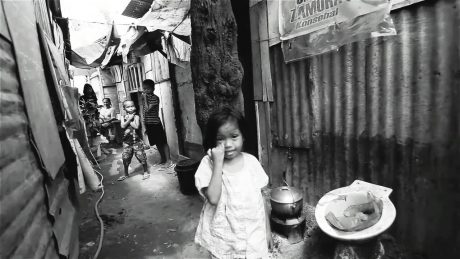
How can we “help the poor”? It depends on one’s definition of “helping”. At its worst, “helping the poor” is seen by many as simply dropping a few coins in the poor box at church or donating stuff to a charity. The poor, in this regard, are seen ascharity cases, and this has come to be the default way many Filipinos deal with the banality of poverty in their society. Indeed, the classic platitudes that form fodder for a typical election campaign reflect this mentality. Politicians pitch themselves as “for the poor” or as being “in solidarity with them”.
The subtle message this sends across is that the poor are “victims” that are in need of a saviour. And it is this “saviour” that politicians then fashion themselves into during their campaign. Small wonder then that we get the sorts of leaders we see today. They come across as saint- or father-figures and, astoundingly, actually ellicit a response from their constituents consistent with that made-up persona! Filipinos regard them the way one would a venerated celebrity or patriarch rather than as a public servant measured on results and the quality of their vision as should be the case.
Pandering to poverty is easy. The needs are so basic that the campaign platitudes that address them are quite straightforward. Developing platforms around the nebulous notion of “uplifiting the poor” is child’s play. Even halfwits can do it. Compare this to addressing the needs of the middle classes and up. Campaign rhetoric to address the needs of the non-poor are far more complex. From the middle classes and up, scrutiny of campaign platforms goes further to involve nuances of taxation, quality of education, environmental concerns, social justice, and other sophisticated issues that are relevant to people further up Maslow’s Hierarchy of Needs. But when you have a population dominated by superstitious people who cannot think beyond their next meal and their next Eat Bulaga fix, mono-syllabic campaign slogans suffice.
This is compounded by social “activsts” who paint the poor as “special people” who require special treatment. Despite the Philippines being a democracy with a free market economy, its “thought leaders” see the poor as exempt from the expectation that everyone be equal participants in the free market. Whereas “well-to-do” people are expected to compete and account for their own success or failure, poor people are considered to be people who need to be given a break — given a break from taxes, given a break from complying with the law, and even given a break for being stupid. Indeed, if the poor are regarded as subject to the same rules the middle classes and up abide by, the jeepney would long have been consigned to a museum, squatters would have long ago been scraped off public land, and certain crooked showbiz celebrities and politicians accused of sexual misconduct and rebellion thrown in jail.
If Filipinos really want to “help the poor” they need to begin by focusing on being consistent — in the application of their laws and in the quality of public services delivered. Perhaps the reason Filipinos feel that their poor need to be treated special is because they feel they owe them compensation for copping the short end of the stick in an inherently unjust society. But, really, the poor remain poor not because of injustice but because society encourages them to be poor. Parents who send the same message to their kids as what Filipino society send to their poor end up with grownup bums living in their house and eating off their fridges for most of their lives. Perhaps it begins by being less patronising and less giving to the poor. It may sound counterintuitive in that context but to the average parent trying to raise kids to be independent and productive adults, it makes perfect sense.

No comments:
Post a Comment